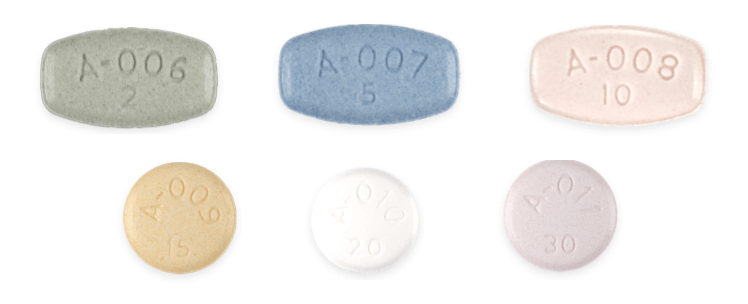Are you considering taking Abilify to treat anxiety, depression, or other psychiatric conditions? If so, you may be wondering if Abilify is classified as a benzodiazepine. This class of medications is known for their sedative properties and is commonly prescribed to treat anxiety disorders. In this article, we’ll discuss the answer to the question: Is Abilify a benzodiazepine? We’ll explore the safety, effectiveness, and side effects associated with Abilify, as well as the potential risks and benefits of taking this medication. Read on for more information about Abilify and its potential effects on your mental health.
No, Abilify (aripiprazole) is not a benzodiazepine. Abilify is an atypical antipsychotic medication used to treat symptoms of schizophrenia, bipolar disorder, and depression. Benzodiazepines are a class of drugs primarily used to treat anxiety, insomnia, seizures, and alcohol withdrawal.

What is Abilify?
Abilify, also known as aripiprazole, is an atypical antipsychotic drug used to treat certain mental health disorders such as schizophrenia, bipolar disorder, and major depressive disorder. It is also used to treat anxiety, Tourette’s syndrome, and irritability associated with autism. Abilify works by blocking dopamine and serotonin receptors in the brain and can help to regulate mood and behavior.
How does Abilify work?
Abilify works by blocking the dopamine and serotonin receptors in the brain. This prevents the brain from over-stimulating the dopamine and serotonin receptors, which can lead to mental health issues. By blocking these receptors, Abilify helps to reduce symptoms of mental health disorders such as anxiety, depression, and psychosis.
What are the side effects of Abilify?
Abilify can cause a variety of side effects, including nausea, drowsiness, restlessness, and dizziness. It can also cause weight gain and increased appetite. Some people may experience an increase in anxiety or agitation while taking Abilify. It is important to talk to your doctor if you experience any of these side effects.
Is Abilify a Benzodiazepine?
No, Abilify is not a benzodiazepine. A benzodiazepine is a type of medication that is used to treat anxiety, insomnia, and seizures. Abilify is an atypical antipsychotic drug and is not a benzodiazepine.
What is the difference between Abilify and Benzodiazepines?
The main difference between Abilify and benzodiazepines is how they work in the brain. Abilify works by blocking dopamine and serotonin receptors in the brain, while benzodiazepines work by increasing the activity of the neurotransmitter GABA in the brain.
Are there any similarities between Abilify and Benzodiazepines?
Yes, both Abilify and benzodiazepines can be used to treat anxiety and other mental health disorders. However, Abilify is usually prescribed for longer-term treatment of mental health disorders, while benzodiazepines are usually prescribed for short-term relief of anxiety. Both medications can cause side effects, such as drowsiness, dizziness, and weight gain.
Few Frequently Asked Questions
Q1. Is Abilify a Benzodiazepine?
A1. No, Abilify is not a benzodiazepine. Abilify is an atypical antipsychotic drug used to treat the symptoms of schizophrenia, bipolar disorder, and major depressive disorder. It works by altering the activity of certain natural substances in the brain, such as dopamine and serotonin to help improve mental balance.
Q2. What is Abilify used for?
A2. Abilify is primarily used to treat the symptoms of schizophrenia, bipolar disorder, and major depressive disorder. It works by altering the activity of certain natural substances in the brain, such as dopamine and serotonin to help improve mental balance. Abilify may also be used to treat other conditions as determined by your doctor.
Q3. How does Abilify work?
A3. Abilify works by altering the activity of certain natural substances in the brain, such as dopamine and serotonin to help improve mental balance. Specifically, Abilify works by blocking the receptors in the brain that dopamine and serotonin attach to, which prevents the neurotransmitters from having their effects on the brain. This helps to reduce the symptoms associated with mental illnesses.
Q4. What are the side effects of Abilify?
A4. Common side effects of Abilify include nausea, vomiting, constipation, headache, dizziness, drowsiness, restlessness, and difficulty sleeping. Other less common side effects include weight gain, increased appetite, dry mouth, blurred vision, and increased sweating. In rare cases, Abilify can cause more serious side effects such as a risk of developing tardive dyskinesia, a movement disorder characterized by involuntary movements of the face, tongue, and other body parts.
Q5. Is Abilify addictive?
A5. Abilify is not considered to be an addictive drug. However, it is possible to become physically and psychologically dependent on Abilify if it is taken in large doses or for an extended period of time. In these cases, it is important to seek medical help to stop taking the medication and manage any withdrawal symptoms.
Q6. How is Abilify usually taken?
A6. Abilify is usually taken in pill form, and the dosage depends on the individual and condition being treated. It is usually taken once or twice a day, with or without food. If you miss a dose, it’s important to take it as soon as you remember. It’s also important to take Abilify exactly as prescribed by your doctor, and not to take more or less than is prescribed.
2-Minute Neuroscience: Benzodiazepines
In conclusion, Abilify is not a benzodiazepine. It is an atypical antipsychotic medication used to treat certain mental illnesses like schizophrenia and bipolar disorder. While it shares certain similarities with benzodiazepines, it is a different type of drug and should never be used as a substitute for benzodiazepines. Always consult your doctor before starting any new medication.

